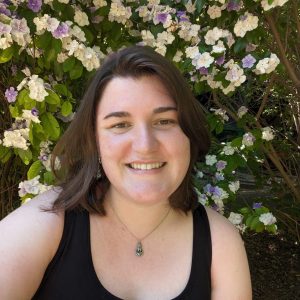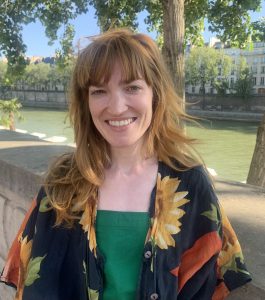Graduate Certificate in Global Medieval Studies
Application closed: September 30, 2024
The Graduate Certificate in Global Medieval Studies reflects new established paradigms in research. For many years, humanistic and social science research focused on temporal connectivity, that is, continuity through time (linearity, genealogy, teleology). In the last two decades, research focusing on spatial connectivities has led to the development of transnational, global, and connected-history approaches.
The Graduate Certificate program in Global Medieval Studies applies a new “global” research model. It takes up the challenge of regional world systems, that is, of the plurality of early worlds. It provides transdisciplinary training based on exchanging methodologies and epistemologies rather than in the narrative of spatial and/or temporal connectivities. It brings to bear the lessons of comparative history on the knowledge we gain by putting unconnected and weakly connected worlds into dialogue. What are methodologically either cognitive dissonances or concordances are epistemologically a range of shared and global phenomena in an unconnected world. In other words, methodology and comparison connect distinct areas of the globe. Connected methodologies enable a transperiodic (non-continuous) and transspatial (non-contiguous) study of early worlds. The certificate program offers students educational opportunities to explore and apply this new research perspective.
The Graduate Certificate in Global Medieval Studies is administered by the CMRS Center for Early Global Studies and housed in the Department of Comparative Literature.
Eligibility
All incoming or current UCLA graduate students pursuing an MA or PhD in some aspect of medieval studies are eligible to apply for this certificate program.
Application Process:
Admission to the certificate program is competitive. Applications are reviewed once a year. The next application deadline is September 30, 2024.
Applicants should submit (PDF format preferred):
- A personal statement (one page, single-spaced) describing your qualifications for and interests in this certificate program.
- One letter of recommendation from your faculty advisor or department chair. This letter should be emailed by the recommender directly to the address below.
- A copy of your current transcript. If the fall quarter is your first academic term at UCLA, please submit a transcript from the last university you attended.
For more information, please contact:
Karen Burgess, CMRS-CEGS Assistant Director
kburgess@humnet.ucla.edu
Certificate Completion Requirements
- Successful completion (“B” or better) of four 200-level classes from the current list of approved courses, as follows:
- One LAMAR (“Late Antique, Medieval, and Renaissance”) methodology course (usually in Fall)
- One course within your primary research area or home department
- Two courses outside your primary research area or home department
- Write an interdisciplinary medieval studies paper (maximum 5,000 words) under the guidance of a CMRS-CEGS faculty member and present it at a CMRS-CEGS Works-in-Progress session.
- Attend three different CMRS-CEGS lectures or conferences (two of which should be outside your primary study area). For each, write a 500-word paper discussing how the presentation reflects the unique global research perspective of CMRS-CEGS and the Global Medieval Studies Certificate program.
Frequently Asked Questions
- I’m not currently in the certificate program, but I’ve already taken some of the seminars on the pre-approved list. If accepted into the certificate program, can the seminars I’ve already taken be retroactively counted towards my requirement?
No. Only classes taken after you are accepted into the certificate program will count toward the certificate requirements.
- I found a 200-level graduate seminar that I think would be perfect for the certificate program, but it’s not on the pre-approved list. Can I petition to have it included on the list?
Yes. You may petition to have a 200-level, 4.0-unit graduate seminar considered for the pre-approved list. You must contact Karen Burgess well BEFORE the seminar the class is being offered, as the committee will not approve a class after it has begun. Provide as much information about the class as possible, including a syllabus, if available. Please allow a minimum of two weeks for a decision. You will be notified via e-mail of the committee’s decision, and if approved, the seminar will be added to the pre-approved list posted on this website.
- A seminar on the pre-approved list is offered as Satisfactory/Unsatisfactory or letter grade. Do I have to take the seminar for a letter grade?
Yes. In order for seminars to count towards certificate program requirements, they must be 200-level, 4.0 unit seminars taken for a letter grade.
- I attended a conference hosted by CMRS and would like to count it towards my certificate requirements. How do I do this?
A brief (500-word) paper about the CMRS-CEGS program you attended should be submitted to Karen Burgess at kburgess@humnet.ucla.edu within one week of attending the event. The paper should include your name, the name, date, and location of the program, and a discussion of how the presentation reflects the unique global research perspective of CMRS-CEGS and the Global Medieval Studies Certificate program. If you are unsure if a particular lecture, conference, or other event can be counted towards the certificate requirement, please contact Karen Burgess well in advance.
Graduate Certificate in Global Medieval Studies
The students profiled below are currently in the process of completing the Graduate Certificate in Global Medieval Studies program. They are listed by academic year when they were accepted into the Certificate program.
2023-24
Miranda Heaner (European Languages and Transcultural Studies)
 Miranda Heaner is a PhD student in the French and Francophone Studies section of the Department of European Languages and Transcultural Studies at UCLA. She previously received a BA in French and International Studies from Northwestern University and a MA in French from the University of Louisiana at Lafayette. Her master’s thesis, Échos Alsaciens dans la culture cadienne, focused on the understudied impact of Alsatian migration to southwest Louisiana (commonly known as Acadiana) and the enduring traces that this migratory movement left on rural Mardi Gras and Christmastime cultural practices. Her 2024 Graduate Student Research Mentorship summer research analyzes tri-regional upper Rhine wintertime noisemaking traditions. She is currently preparing to begin her dissertation research.
Miranda Heaner is a PhD student in the French and Francophone Studies section of the Department of European Languages and Transcultural Studies at UCLA. She previously received a BA in French and International Studies from Northwestern University and a MA in French from the University of Louisiana at Lafayette. Her master’s thesis, Échos Alsaciens dans la culture cadienne, focused on the understudied impact of Alsatian migration to southwest Louisiana (commonly known as Acadiana) and the enduring traces that this migratory movement left on rural Mardi Gras and Christmastime cultural practices. Her 2024 Graduate Student Research Mentorship summer research analyzes tri-regional upper Rhine wintertime noisemaking traditions. She is currently preparing to begin her dissertation research.
Amanda Styles (Library Science)
 Amanda Styles is a graduate student in the Library and Information Science (MLIS) in the Department of Information Studies at UCLA. In 2022, she graduated from UC Berkeley with a Highest Honors BA in English and minor in Medieval Studies. There, she wrote her BA thesis on the dual themes of singularity and collectivity with Julian of Norwich’s Revelations of Divine Love and its modern, fictional adaptations. Within her MLIS program, Amanda specializes in Rare Books/Print and Visual Culture with a particular interest in the provenance and curation of medieval manuscripts and incunabula. She intends to write her MA thesis on authors’/scribes’ relationship with the manuscript as a physical object under the direction CalRBS Director, Robert Montoya. Amanda plans to complete her certificate in Global Medieval Studies prior to graduating in June 2025. From there, she hopes to pursue a career in rare book librarianship, possibly earning a secondary masters and/or PhD along the way to better hone her knowledge on the medieval and early modern periods.
Amanda Styles is a graduate student in the Library and Information Science (MLIS) in the Department of Information Studies at UCLA. In 2022, she graduated from UC Berkeley with a Highest Honors BA in English and minor in Medieval Studies. There, she wrote her BA thesis on the dual themes of singularity and collectivity with Julian of Norwich’s Revelations of Divine Love and its modern, fictional adaptations. Within her MLIS program, Amanda specializes in Rare Books/Print and Visual Culture with a particular interest in the provenance and curation of medieval manuscripts and incunabula. She intends to write her MA thesis on authors’/scribes’ relationship with the manuscript as a physical object under the direction CalRBS Director, Robert Montoya. Amanda plans to complete her certificate in Global Medieval Studies prior to graduating in June 2025. From there, she hopes to pursue a career in rare book librarianship, possibly earning a secondary masters and/or PhD along the way to better hone her knowledge on the medieval and early modern periods.
2022-23
Alex Casteel (Archaeology)
 Alex Casteel is a PhD student at the Cotsen Institute of Archaeology, UCLA. Although Alex’s earliest archaeological fieldwork was in South America, he examined possible Viking-Age artefacts at a re-used broch in Orkney for his Bachelor’s thesis after an interest in the synergy of material and textual information led him toward Norse archaeology, mythology, and Old Norse sagas. He recently completed his MA/MPhil in Iceland and Norway with a thesis that discussed the “Wind of the Giantess” skaldic kenning, which opened his eyes to ontological difference. His transdisciplinary research now focuses on the early settlers of the Mosfell Valley in Iceland through the lens of the built landscape. By thinking of them as embodied participants in a material and more-than-human ecology with vast building potential, he will consider architectural construction and experiencing across a continuum from the actual to the virtual through senses, emotion, affect, and more. Alex has worked as a CMRS-CEGS Graduate Student Research under the mentorship of CMRS-CEGS faculty member Jesse Byock (ELTS, Scandinavian, UCLA). He has also awarded a CMRS-CEGS Research and Study Travel Grant to support his archaeological research in Iceland during the summer of 2023.
Alex Casteel is a PhD student at the Cotsen Institute of Archaeology, UCLA. Although Alex’s earliest archaeological fieldwork was in South America, he examined possible Viking-Age artefacts at a re-used broch in Orkney for his Bachelor’s thesis after an interest in the synergy of material and textual information led him toward Norse archaeology, mythology, and Old Norse sagas. He recently completed his MA/MPhil in Iceland and Norway with a thesis that discussed the “Wind of the Giantess” skaldic kenning, which opened his eyes to ontological difference. His transdisciplinary research now focuses on the early settlers of the Mosfell Valley in Iceland through the lens of the built landscape. By thinking of them as embodied participants in a material and more-than-human ecology with vast building potential, he will consider architectural construction and experiencing across a continuum from the actual to the virtual through senses, emotion, affect, and more. Alex has worked as a CMRS-CEGS Graduate Student Research under the mentorship of CMRS-CEGS faculty member Jesse Byock (ELTS, Scandinavian, UCLA). He has also awarded a CMRS-CEGS Research and Study Travel Grant to support his archaeological research in Iceland during the summer of 2023.
Moises Machuca (Comparative Literature)
 Moises Machuca is a PhD student in the Department of Comparative Literature at UCLA. He received his BA in Literature and Philosophy from UCSC in 2020. His research focuses on early (pre) colonial European and American Indian encounters/conflicts. He is interested in how Early Modern emotions helped shape European colonial powers, how American Indians thought of each other, and how emotions led to suspicion, violence, peace, and loyalty.
Moises Machuca is a PhD student in the Department of Comparative Literature at UCLA. He received his BA in Literature and Philosophy from UCSC in 2020. His research focuses on early (pre) colonial European and American Indian encounters/conflicts. He is interested in how Early Modern emotions helped shape European colonial powers, how American Indians thought of each other, and how emotions led to suspicion, violence, peace, and loyalty.
2021-22
Julie Ershadi (Near Eastern Languages and Cultures)
 Julie Ershadi is a graduate student in the Department of Near Eastern Languages and Studies at UCLA. She has a BA in Linguistics & Languages and Creative Writing from Bryn Mawr College. Her research interests include Persian linguistics, Persian literary diachrony, endangered languages and contemporary Iranian-American issues. Her recent research has focused on the major poets of the Mongol or Ilkhanid period in premodern Persian literary history period, many of whom have not been studied in any depth outside of Iran. Their works manifested not only as art but as tools, mediated by aesthetics, for social and political exchange among a monarch and his or her subjects and rivals. In order to effectively communicate in the emergent Perso-Mongol milieu, poets wrote verses that reflected the cultural, political, and linguistic points of contact between the two societies. Important questions remain surrounding the use of lyric and panegyric poetry in influencing the often fraught sociopolitical atmosphere of the time.
Julie Ershadi is a graduate student in the Department of Near Eastern Languages and Studies at UCLA. She has a BA in Linguistics & Languages and Creative Writing from Bryn Mawr College. Her research interests include Persian linguistics, Persian literary diachrony, endangered languages and contemporary Iranian-American issues. Her recent research has focused on the major poets of the Mongol or Ilkhanid period in premodern Persian literary history period, many of whom have not been studied in any depth outside of Iran. Their works manifested not only as art but as tools, mediated by aesthetics, for social and political exchange among a monarch and his or her subjects and rivals. In order to effectively communicate in the emergent Perso-Mongol milieu, poets wrote verses that reflected the cultural, political, and linguistic points of contact between the two societies. Important questions remain surrounding the use of lyric and panegyric poetry in influencing the often fraught sociopolitical atmosphere of the time.
Jodie Miller (European Languages and Transcultural Studies, French)

Jodie Miller is a Ph.D. candidate in the French section of the department of European Languages and Transcultural Studies at UCLA. Her dissertation focuses on the Old French Roman de Renart, its translations in medieval Europe, and also considers convergences with the Kalila and Dimna fables. She is specifically interested in the trial scenes of the fox, Renart, and the jackal, Dimna, and the indirect influence of Kalila and Dimna on the Roman de Renart during its transmission across the Mediterranean and into medieval Europe.

